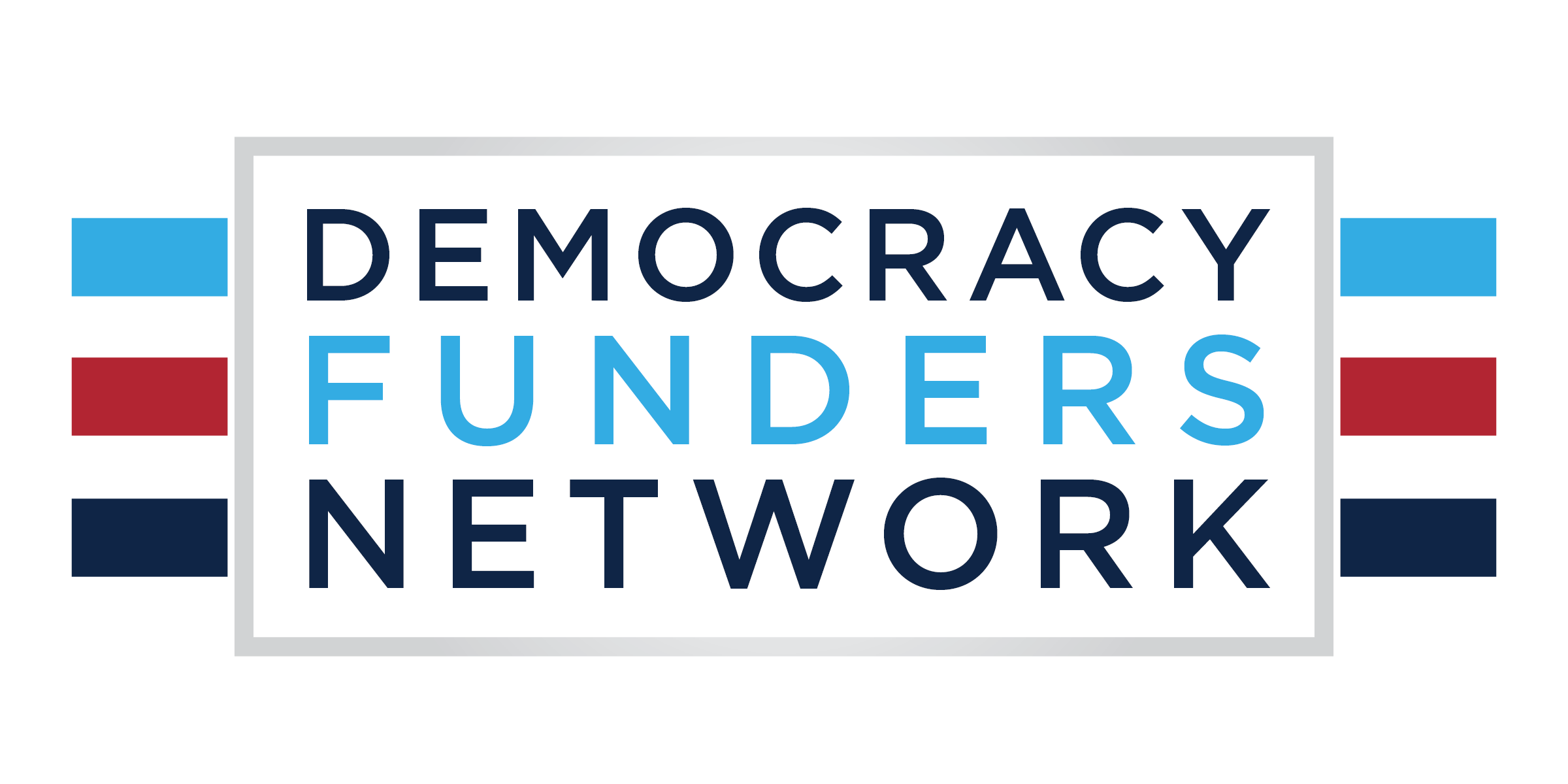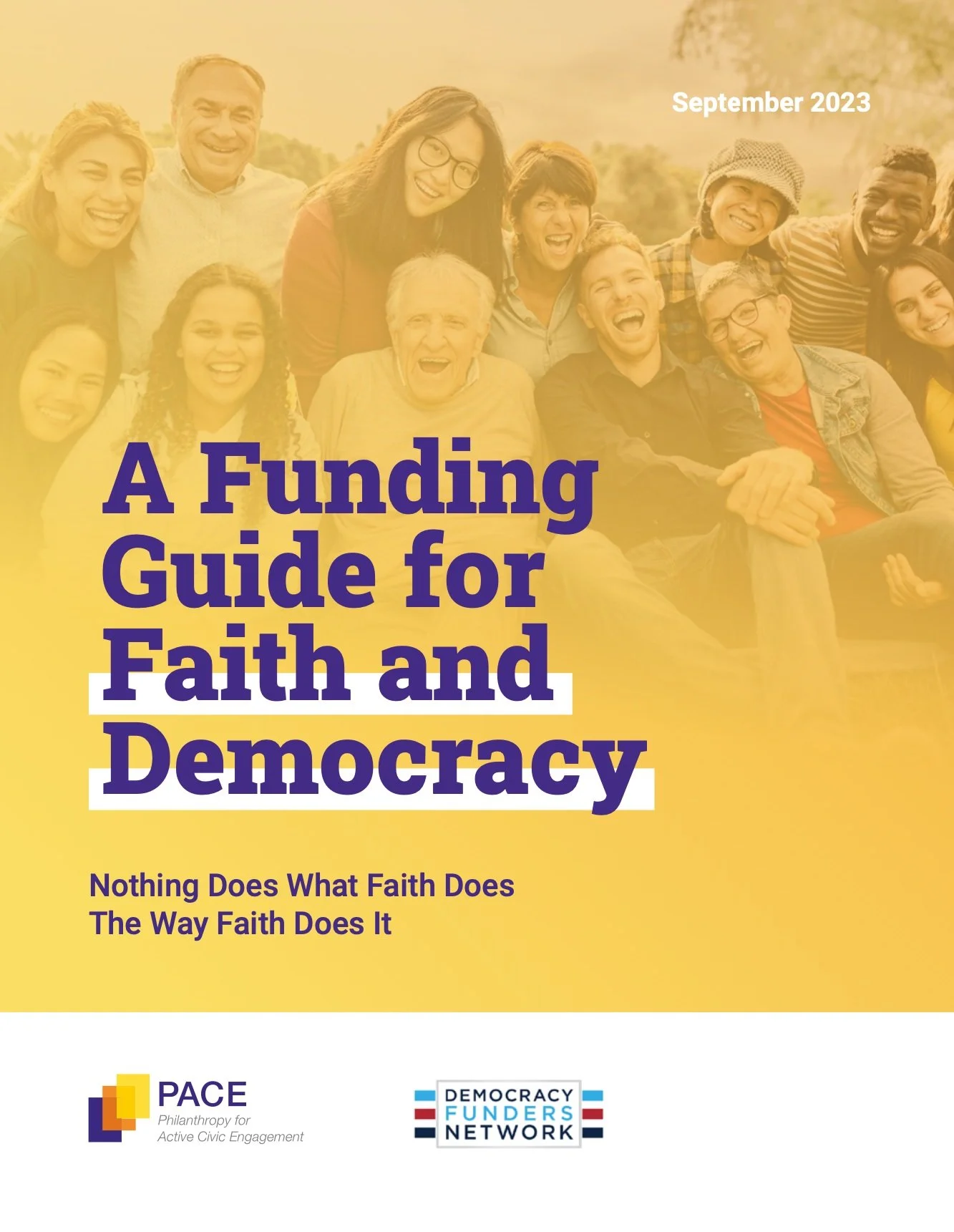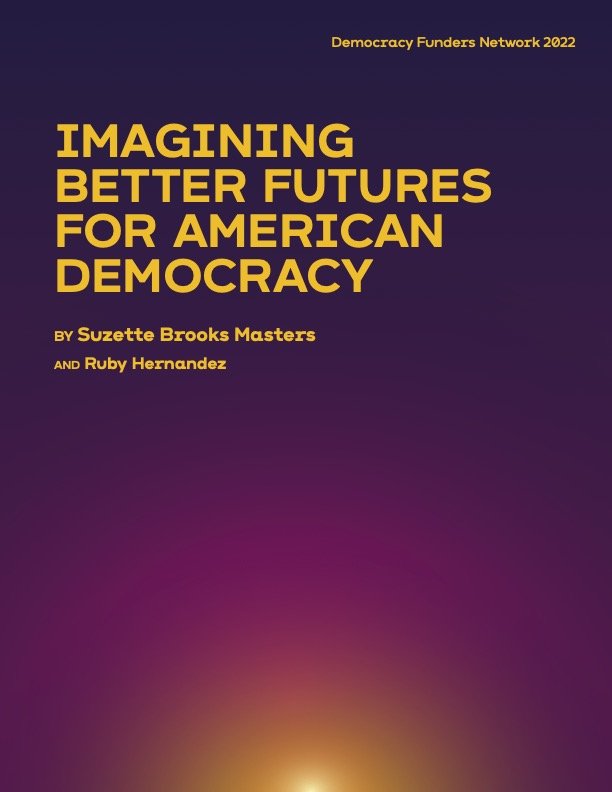Building a robust, high functioning pluralist democracy in the U.S. capable of ushering in better futures for Americans requires us to think boldly and move away from reaction, apathy, and surrender. The extraordinary times we live in, full of rapid change, uncertainty and possibility, call upon us to identify and lift up positive disruptors who dare to dream and imagine what could be.
DFN’s report Imagining Better Futures for American Democracy is a call to action to imagine what our democracy could become. Informed by dozens of interviews with visionary thinkers and doers from a variety of fields and viewpoints, including futurists, activists, thought leaders, creatives, artists, religious leaders, and funders, the report shares their insights on why positive visioning matters, discusses how those visions of better futures relate to democracy and governance systems, and asks how we can inspire more Americans to dream bigger and develop a sense of agency to bring those ideas to fruition.
Read the full report here>
Below are the report’s key findings and recommendations:
Findings:
Enthusiastic and emphatic agreement that positive visions of the future matter tremendously because they help us to imagine better alternatives, motivate us, and guide us to achieving positive societal outcomes. They also reinforce the idea that we have agency to shape our individual and collective futures and those of our descendants.
Many obstacles (e.g., complex problems from the local to the planetary, conflict-driven media and political environments, dystopian narratives, racism and othering) currently stand in the way of positive visions of the future emerging at scale.
Recommendations:
While we have a strong foundation on which to build – great ideas, visionary leaders, real-world experiments, powerful stories about better futures, and media campaigns – we need more infrastructure and connective tissue to gain traction and impact. Accordingly, we recommend three types of strategies:
Strengthen the positive visioning ecosystem by investing in infrastructure and relationships
There are numerous ways to build and support an emerging ecosystem and to create connections between those broadly engaged in positive visioning and those working specifically on democracy issues. We recommend more networking, collaboration, and mapping, more productive chances to convene donors and working groups around the future of democracy, and greater use of futures thinking tools to change mindsets.
Model what’s possible and fund experimentation
We want to explore how to adapt governance innovations from outside the U.S. that incorporate a futures orientation, a longer planning horizon, and an intergenerational fairness lens. We also see promise in funding innovative efforts to strengthen and invigorate democracy in the U.S., especially at the state and local level, by using technology, engaging youth, creatives, game designers, and speculative fiction writers, and tapping into collective imagination exercises.
Strengthen narrative systems & amplify positive, futures-oriented content
We need strategies that elevate and sustain narratives of abundance, interdependence, and mutuality and that amplify current bright spots for greater impact. Content also matters. We need more of it that’s positive, inspiring, and hopeful about what we can build together. That means influencing which stories are told, by whom, and how.
Read the full report here>







